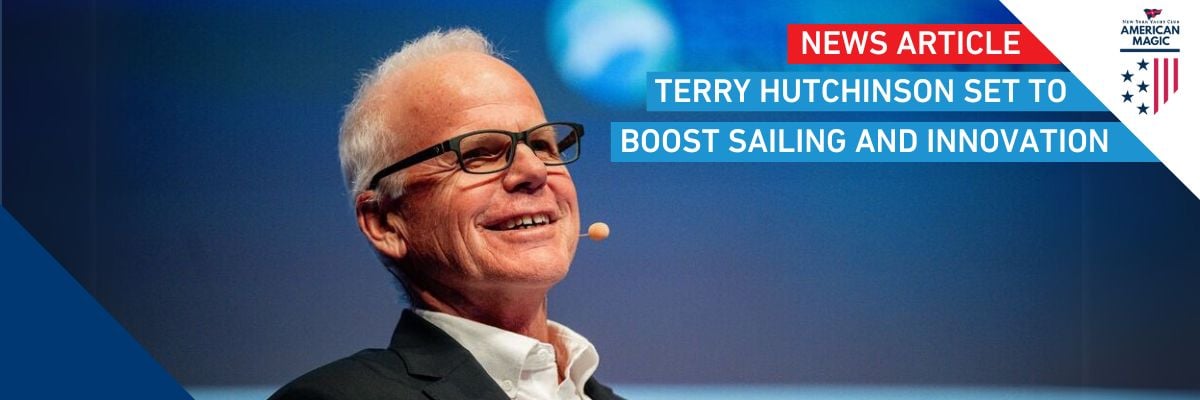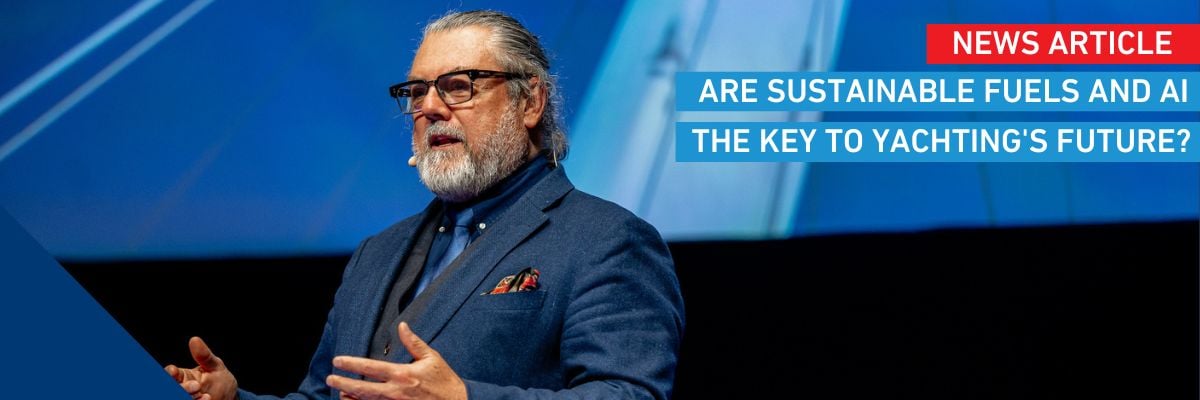What are the key issues that will define the direction of boat building in the near future? That was the subject of a METSTRADE Theatre panel featuring co-founder of J&J Design and 2024 Boat Builder Awards Designer of the Year, Japec Jakopin, Garmin’s EMEA Marine Segment Director Pontus Fernstrom and IBI Editor Ed Slack. Here are selected highlights of the panel.
The conversation started by looking at current trends, with the changing economics of boating an early talking point. “We are now witnessing the move of the industry toward bigger luxury boats, where the money is,” Jakopin stated. “Smaller boats and mass boaters are losing ground because boating is getting expensive and it’s not convenient, nor easy. So, there are many obstacles which the industry needs to address to maintain the popularity of boating and to keep the family and the mass market going out on the water.”
Fernstrom observed: “Maybe we haven't done a good enough job as an industry of telling people about the value that you get or the price that you pay. We’ve seen this time over time when these booms happen. Also, the second-hand market doesn’t really follow. You end up in a situation where new boats are very expensive and used boats are priced wrongly in the market so they don’t move, then everything slows up. Right now, that trend is settling down which helps a little.
Advantages of boating over other leisure activities
The panel reflected on US initiatives where the emphasis is on boating being a leisure activity which keeps the family together. Another Boat Builder Awards winner this year, the Kirt Cousins campaign by Manitou Boats, understandably traded on the NFL quarterback’s star presence and profile. However, it noticeably also featured film of him enjoying relaxing times out on the water with his wife and children. “Boating’s ability to engage families is a big plus,” Jakopin observed. “It keeps them together and connects them with nature. So, it has many beautiful things other leisure activities don’t have. This is something we can build on.
“We also need to change the way boats are designed because they are used in a different way than they were 10, 20, or 30 years ago. There are some builders reflecting new trends, like Axopar and Saxdor, and their ranges are selling well with a long delivery time. It is our job to make boats easier to sail, convenient and more adapted to the way the boats are used today; this will make them more affordable also.”
Fernstrom added: “That approach creates the value that I was referring to, instead of dropping prices and thinking that is the solution for everything. The value driver of getting families out on the water to experience it is what will turn the industry’s progress around. I agree that we also need to make boating as easy as possible. To take away all the hurdles and blockers of handling a boat and maintaining it, so that it just becomes accessible for more people.”
Need for a resurgence in sail
The panel agreed that the emergence of boat clubs was a good thing, recognising it addressed the demand for new ways of accessing boating. It was seen as particularly attractive to a younger demographic, which would help rebalance the market as the last of the baby boomers retire out of boating in coming years.
However, the point was made that these boat clubs are almost all exclusively serving the powered boat sector. Sail should be offering much in these days of increased sustainability awareness, but Jakopin quoted numbers that starkly illustrate the sharp decline in new boat production: “I am a sailor and was not so happy to see back in 1983 when we started designing boats that 50 per cent of the market in Europe was sailing and 50 per cent was power. In the US it was a split of just 15 per cent sailing and 85 per cent power. Two years ago, I made a study and sailing in Europe is just seven per cent of the market and in the US it’s one per cent. We can get people back into sailing, but to do so we need to change the way that sailboats work. They are not convenient.”
“The America’s Cup has really changed the sport over these last few years,” Fernstrom added. “It’s super-fast now and very high-tech in ways that no one has seen before. That is a good way of attracting new people into that section of the market. And of course, sustainability is very important, so it’s strange that we don’t have more sailors out there.”
Time to explore new opportunities
Jakopin also highlighted other ways to stabilise and expand the market: “The industry needs to recognise that people live longer, which means we need to adapt boats for people well into their 70s who still want to go boating but need some changes. Other industries have been catering for ageing populations with success.
“These are plenty of opportunities we have yet to address, because in the post pandemic boom things were so easy. We just needed to pay attention to how to create as much product as possible. But now it's time to think, develop and launch new things.”
“We are of course heavily involved in the technology side of boating,” Fernstrom added. “A lot of boat builders say they need to provide a car-like experience, and for electric boats that includes ensuring easy access to critical information such as range, where you’re going and what you need to do. We get daily requests to scale complexity down, to create ease of use that encourages new people in.”
Data informed development
The panel went on to discuss what might prove to be the biggest barriers to boat builders launching new genres to open new markets. “It’s a very conservative industry,” Jakopin commented. “To put it mildly, everybody is scared to do things differently. Everybody waits to see if pioneers will pay for the risk or discover new ground. Typically, the bigger the boat builder, the more prudent it is and less eager to try new things.
“However, we were quite happy to see an exception with Group Beneteau launching its Island Cruising Concept. Two concept boats have been built – one is in Croatia and the other is being shipped to the British Virgin Islands.”
“What they are doing could be a game changer,” Slack agreed, having chaired the panel of judges that awarded this project as winner of the Eco Focused Boat over 10m category in this year’s IBI METSTRADE Boat Builder Awards. “Beneteau is using real time data from more than 1000 boats and 180,000 people to establish how people are using their boats, instead of employing preconceived ideas that we have used for decades now. That’s changing everything in this concept, from looks and layout to propulsion and hull design.”
“Data is a big topic, Fernstrom added. Literally everybody is asking how we can understand more what our customers are doing and how they’re using their boats. Right now, there’s a lot of guesswork going on. Everybody is trying to gather some data but they are only getting their own data and don’t know the whole market. I think we need to start collecting data in a wider format across many boatbuilders. With that knowledge we can also build the right products.”
Solid ground to grow the industry
“Beneteau has proven that an effective boat can be created from good data,” Jakopin concluded. “Initial trials suggest such a boat can be affordable, reliable and sustainable at the same time. This is the direction needed to take sustainable boating out of an expensive niche. We must try to go to the mass market with these principles, and we have the technology now to support it.
“This edition of Metstrade shows that boating is not going to die. It is growing worldwide, and I think the people who started boating in COVID times will not quit now. We have solid ground to increase our industry, but the ball is in our camp. We must make the effort and change the products and the services to be affordable and to meet the real requirements of the people using them.”
About the Boat Builder Awards
The IBI-Metstrade Boat Builder Awards for Business Achievement is jointly organised by Metstrade and International Boat Industry magazine. It was launched in 2015 to highlight the significant business-related efforts of boat builders, shipyards and the individuals that empower them. The headline sponsor and long-standing main supporter for the event since inception was Raymarine. The category sponsors this year were ePropulsion, Fusion, HP Watermakers, JLAudio, Lumishore and the Sleipner Group.


